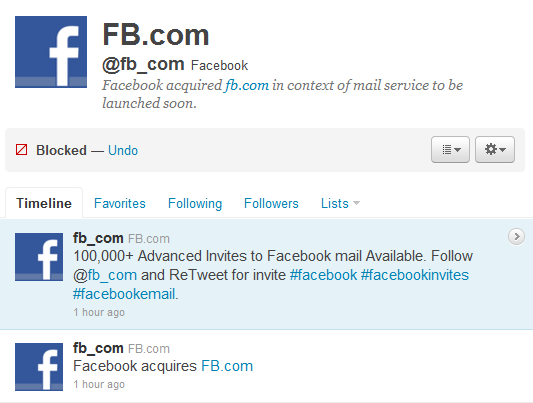TwitBlock is over a year old now. One thing we have tried to avoid is being an authority on what is and isn’t spam. We have deliberately avoided blacklisting accounts. The idea has always been to empower the community to collectively decide what is spam by bringing the most likely junk accounts to the surface. We provide some very simple analysis, and indicate how many other people also think an account is spam.
For reasons that I’ll explain below, we have decided to implement a blacklist system as of today. Blacklisted Twitter accounts always show up with a 100% confidence score and will appear at the top of scan results. You can still see the standard spam score indicators, as the screen-grab below shows.

Who decides what accounts are blacklisted?
Currently myself, and selected other people that I deem trustworthy. We take this seriously and won’t just blacklist an account for being annoying, or noisy. We roughly follow Twitter’s own guidelines on spam, and only blacklist accounts we are certain are malicious, fraudulent, or extremely distasteful.
If you would like to be an administrator, let us know by way of a tweet.
If you think you’ve been blacklisted unfairly, let us know by way of a tweet also.
Why implement blacklisting?
The methods we’ve used to date have worked reasonably well, but a distinct problem has been that if you block spammers on other site, it can take us several days to catch up with that data. Spam accounts can collect thousands of followers in a very short space of time, and do a fair bit of damage before they start to show in TwitBlock scans.
 Finally prompting the introduction of blacklists was my observation of the recent Facebook scams. One fake Twitter account was offering invites the new messaging system, another offering Facebook credits. I watched these go viral, racking up 2,000-3,000 followers each before they were finally suspended after about 36 hours.
Finally prompting the introduction of blacklists was my observation of the recent Facebook scams. One fake Twitter account was offering invites the new messaging system, another offering Facebook credits. I watched these go viral, racking up 2,000-3,000 followers each before they were finally suspended after about 36 hours.
Even if Twitter were investigating these accounts, no warning was issued via their spam and safety accounts. The fact that these accounts were imitating such a well known company should make them a high priority, as they were far more likely to fool people. In the case of Facebook credits, financial fraud may have been involved.
It is clear that Twitter cannot act fast enough in shutting spam accounts down. If they were to show up in TwitBlock scans sooner, they would be reported by more users. Then perhaps Twitter would notice them sooner, and shut them down faster.